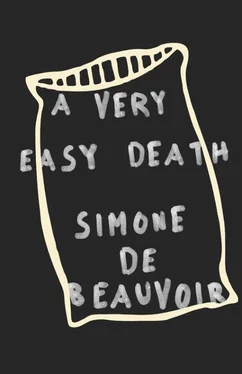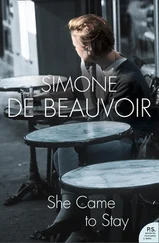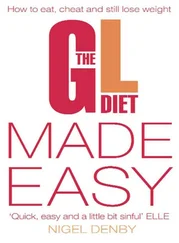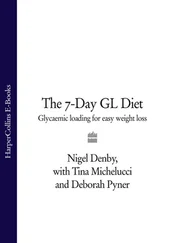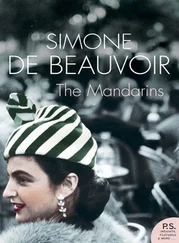Simone de Beauvoir - A Very Easy Death
Здесь есть возможность читать онлайн «Simone de Beauvoir - A Very Easy Death» весь текст электронной книги совершенно бесплатно (целиком полную версию без сокращений). В некоторых случаях можно слушать аудио, скачать через торрент в формате fb2 и присутствует краткое содержание. Город: New York, Год выпуска: 2012, ISBN: 2012, Издательство: Pantheon Books, Жанр: Биографии и Мемуары, на английском языке. Описание произведения, (предисловие) а так же отзывы посетителей доступны на портале библиотеки ЛибКат.
- Название:A Very Easy Death
- Автор:
- Издательство:Pantheon Books
- Жанр:
- Год:2012
- Город:New York
- ISBN:978-0-307-83219-1
- Рейтинг книги:4 / 5. Голосов: 1
-
Избранное:Добавить в избранное
- Отзывы:
-
Ваша оценка:
- 80
- 1
- 2
- 3
- 4
- 5
A Very Easy Death: краткое содержание, описание и аннотация
Предлагаем к чтению аннотацию, описание, краткое содержание или предисловие (зависит от того, что написал сам автор книги «A Very Easy Death»). Если вы не нашли необходимую информацию о книге — напишите в комментариях, мы постараемся отыскать её.
The Sunday Telegraph
Powerful, touching, and sometimes shocking, this is an end-of-life account that no reader is likely to forget.
A Very Easy Death — читать онлайн бесплатно полную книгу (весь текст) целиком
Ниже представлен текст книги, разбитый по страницам. Система сохранения места последней прочитанной страницы, позволяет с удобством читать онлайн бесплатно книгу «A Very Easy Death», без необходимости каждый раз заново искать на чём Вы остановились. Поставьте закладку, и сможете в любой момент перейти на страницу, на которой закончили чтение.
Интервал:
Закладка:
Her vitality filled me with wonder, and I respected her courage. Why, as soon as she could speak again, did she utter words that froze me? Telling me of her night at the Boucicaut she said, ‘You know what the women of the lower classes are like: they moan.’ ‘These hospital nurses, they are only there for the money. So …’ They were ready-made phrases, as automatic as drawing breath; but it was still her consciousness that gave them life and it was impossible to hear them without distress. The contrast between the truth of her suffering body and the nonsense that her head was stuffed with saddened me.
The physiotherapist came to Maman’s bed, turned down the sheet and took hold of her left leg: Maman had an open hospital nightdress on and she did not mind that her wrinkled belly, criss-crossed with tiny lines, and her bald pubis showed. ‘I no longer have any sort of shame,’ she observed in a surprised voice.
‘You are perfectly right not to have any,’ I said. But I turned away and gazed fixedly into the garden. The sight of my mother’s nakedness had jarred me. No body existed less for me: none existed more. As a child I had loved it dearly; as an adolescent it had filled me with an uneasy repulsion: all this was perfectly in the ordinary course of things and it seemed reasonable to me that her body should retain its dual nature, that it should be both repugnant and holy – a taboo. But for all that, I was astonished at the violence of my distress. My mother’s indifferent acquiescence made it worse: she was abandoning the exigencies and prohibitions that had oppressed her all her life long and I approved of her doing so. Only this body, suddenly reduced by her capitulation to being a body and nothing more, hardly differed at all from a corpse – a poor defenceless carcass turned and manipulated by professional hands, one in which life seemed to carry on only because of its own stupid momentum. For me, my mother had always been there, and I had never seriously thought that some day, that soon I should see her go. Her death, like her birth, had its place in some legendary time. When I said to myself ‘She is of an age to die’ the words were devoid of meaning, as so many words are. For the first time I saw her as a dead body under suspended sentence.
The next morning I went to buy the nightdresses that the nurses had asked for – short ones, otherwise they wrinkled under the patient’s bottom, which caused bed-sores.
‘Do you want shorties? Baby-doll nighties?’ asked the shop-assistants. I fingered frothy night-things as nonsensical as their names, in pastel colours, made for young, happy bodies. It was a lovely autumn day with a blue sky: I made my way through a lead-coloured world, and I realized that my mother’s accident was affecting me far more than I had thought it would. I could not really see why. It had wrenched her out of the framework, the role, the set of images in which I had imprisoned her: I recognized her in this patient in bed, but I did not recognize either the pity or the kind of disturbance that she aroused in me. Finally I decided upon some pink three-quarter nightgowns with white spots.
Dr T, who was looking after Maman’s general condition, came to see her while I was there.
‘It seems that you eat too little?’
‘I was depressed this summer. I didn’t have the heart to eat.’
‘You found cooking a nuisance?’
‘What happened was that I made myself little treats, and then I left them.’
‘Aha. It wasn’t laziness, then. So you made yourself little treats?’
Maman concentrated. ‘Once I made myself a cheese soufflé: after two spoonfuls I couldn’t eat any more.’
‘I see,’ said Dr T, with a condescending smile.
Dr J, Professor B, Dr T: neat, trim, shining, well-groomed, bending over this ill-kempt, rather wild-looking old woman from an immense height: great men; bigwigs. I recognized that piddling self-importance: it was that of the judges on the bench when they have a man whose life is at stake before them. ‘So you made yourself little treats?’ There was no reason to smile while Maman was searching her memory with trustful willingness: it was her health that was at stake. And what right had B to say to me ‘She will be able to potter around again’? I objected to his scale of values. I bristled when the privileged classes spoke through my mother’s mouth; but I felt wholly on the side of the bedfast invalid struggling to thrust back paralysis and death.
On the other hand I did like the nurses; they were linked to their patient by the extreme closeness of those necessary tasks that were humiliating for her and revolting for them, and the interest they took in Maman did at least have the appearance of friendship. Mlle Laurent, the physiotherapist, could raise her spirits, give her a sense of security and calm her; and she never assumed any superiority.
‘We will have your stomach X-rayed tomorrow,’ said Dr T, finally.
Maman was distressed. ‘So you are going to make me swallow that horrible stuff.’
‘It’s not as bad as all that!’
‘Oh, but it is.’ When she was alone with me she said pitifully, ‘I can’t tell you how nasty it is. It tastes vile.’
‘Don’t think about it in advance.’
But she could not think about anything else. Ever since she had entered the nursing-home the food had been her chief preoccupation. Still, her childish concern surprised me. She had borne a great deal of sickness and pain without wincing. Was there a deeper anxiety hiding behind the fear of an unpleasant preparation? I did not ask myself that at the time.
The next day they told me that the X-rays – stomach and lungs – had gone off very well, and that there was nothing out of order. Maman, looking calm, wearing one of the pink nightgowns with white spots and the bed-jacket Olga had lent her, and with her hair in a big plait, no longer had the look of a sick woman. The use of her left arm had come back to her; she could unfold a paper, open a book or pick up the telephone without help. Wednesday. Thursday. Friday. Saturday. She did crosswords, read a book on Voltaire in love and Jean de Léry’s account of his expedition in Brazil; she looked through Le Figaro and France-Soir . I came every morning; I only stayed an hour or two; she did not want to keep me any longer. She had a great many visitors and sometimes indeed she complained of it: ‘I have seen too many people today.’ The room was full of flowers – cyclamens, azaleas, roses, anemones; and on her bedside table there were piles of boxes of chocolates and sweets.
‘Don’t you get bored?’ I asked her.
‘Oh, no!’
She was discovering the pleasures of being waited on, looked after, petted. Before, she had had to make a great effort to climb over the edge of her bath, helping herself with a stool; putting on her stockings had meant painful contortions. Now, a nurse came every morning and evening, and rubbed her with eau de Cologne and powdered her with talcum. Her meals were brought on a tray. ‘There is one nurse who irritates me,’ she said. ‘She asks me when I expect to leave. But I don’t want to leave at all.’ When she was told that presently she would be able to sit up in an armchair and that presently she would be transferred to a convalescent home, her face clouded over: ‘They are going to hustle me and push me about.’ Yet there were times when she concerned herself with her future. A friend had talked to her about rest-homes an hour from Paris: ‘No one will come and see me; I shall be too lonely,’ she said unhappily. I assured her that she would not have to go into exile and I showed her the list of addresses I had gathered. She was quite happy to think of herself reading or knitting in the sun in the garden of a home at Neuilly. A little regretfully, but not without irony, she said, ‘The people in my quarter are going to be sorry not to see me any more. The women at the club will miss me.’ Once she said to me, ‘I have lived for others too much. Now I shall become one of those self-centred old women who only live for themselves.’ One thing worried her. ‘I shan’t be able to wash and dress myself any more.’ I set her mind at rest: an attendant, a nurse, would look after that. Meanwhile, she was happily taking her ease in one of the beds of ‘the best nursing-home in Paris, so much better than the G Clinic’. They paid the closest attention to her. As well as the X-rays there had been several blood-tests – everything was normal. Her temperature rose in the evening and I would have liked to know why; but the nurse did not seem to think it at all significant.
Читать дальшеИнтервал:
Закладка:
Похожие книги на «A Very Easy Death»
Представляем Вашему вниманию похожие книги на «A Very Easy Death» списком для выбора. Мы отобрали схожую по названию и смыслу литературу в надежде предоставить читателям больше вариантов отыскать новые, интересные, ещё непрочитанные произведения.
Обсуждение, отзывы о книге «A Very Easy Death» и просто собственные мнения читателей. Оставьте ваши комментарии, напишите, что Вы думаете о произведении, его смысле или главных героях. Укажите что конкретно понравилось, а что нет, и почему Вы так считаете.
